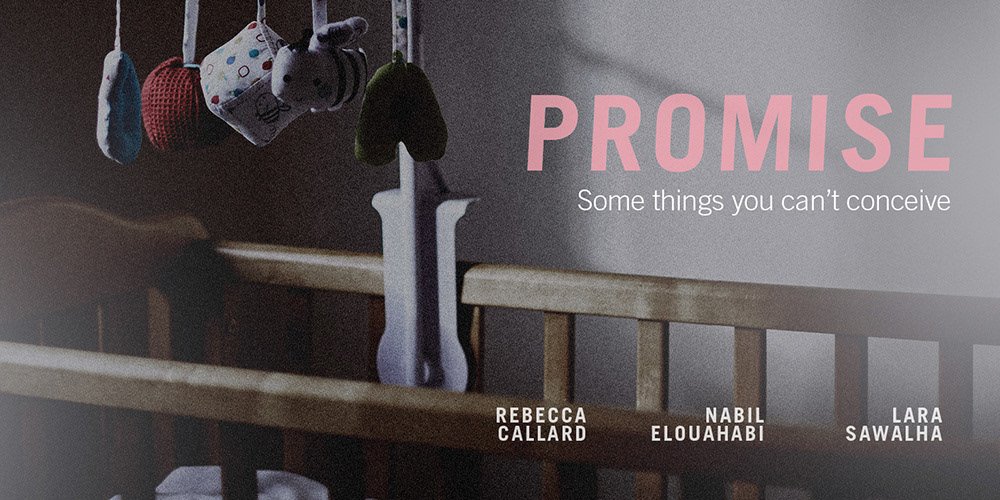We talk to producer, and founder of The Pitch, Luke Walton about the competition and its origins as well as one of its recent success stories Promise.

Luke Walton is the founder of The Pitch, a competition for filmmakers in the UK which offers (amongst many other things, including masterclasses) up to £30,000 in assistance for projects pitched. Now in its tenth year, and with deadlines for the next competition now open, we asked him about the competition and its goals to see it from his perspective.
Do you think you can break down what The Pitch offers to filmmakers into a single sentence?
We offer the support emerging talent needs - advice, network, development, skills and, critically, a cash budget to make it happen without being a fundraiser!
What was the genesis of The Pitch? Was there a particular moment, or event, that sparked the idea or had it been a long time coming?
In 2007, I ran a small film festival in Manchester for young filmmakers. It was a great success but in reviewing the event to consider what we would do next I discovered that the concept behind The Pitch had been the original proposal. I love film festivals, but this concept offered real support and had such potential I chose to divert energy into developing this idea into a working viable model.
People often talk about how it’s getting even harder to get off the ground in the industry today. The Pitch is obviously here to help but do you see any bigger, long-term, solutions, such as increased government arts funding, or are we going to have to redefine how we think about filmmaking altogether going into the future?
Education and training are key. With proper development, real talent will emerge and ultimately that will attract investment. However that always leaves the catch 22 - to be acknowledged: make a film, to be funded: show a film you have made! So there is clearly a place for more funding opportunities too. If the government were to commission us to apply additional funding we would see ten short films every year, all of them from raw emerging talent that deserves this opportunity.
People also talk a lot about how the internet has changed filmmaking today, particularly by “democratising” the process more. The Pitch incorporates a public vote into itself, what does the democratic aspect of it mean to you?
Filmmakers want their ideas and vision to have the oxygen of an audience and, as a small organisation, we also need that to get the word out about this opportunity. However we moderate the public vote with the results from our internal panel - an element of democracy with industry experience and expertise mixed in is an excellent cocktail.
What’s the winning mentality for The Pitch? What makes judges stand up and take notice of an idea more than anything else?
Story is king! Next comes telling a story that matters to the filmmaker - one which has genuine investment. When it comes to a particular mentality then I think a key skill is to know when to fight for your idea or artistic vision and when to not just listen but to hear and respond to critique and feedback.

Recently released, and hard-hitting, short Promise was made with assistance from The Pitch. What do you think it is about Promise that makes it so promising?
Promise is a really smart adaptation - an apparently simple story and yet ancient and profound, brought into the everyday contemporary world to devastating effect.
If I’m not mistaken, Promise wasn’t even the winner; but rather came about via partial financing from a runner up fund. When did that start and are there plans to extend it into the future?
Promise stood out to me as an outstanding concept and together with one of our judges, and the film’s director Nev Pierce, we set about seeking the independent funding. We have tried to offer additional funds to our runners up, depending on our own resources. Sometimes, these have been more than other competitions offer as the “match funding” they expect to become short films. But we are investing in filmmakers, not fundraisers. The more funds I can secure, the more films we will make - bring it on!
There’s a biblical connection to Promise and the rules for the upcoming Pitch competition also outline a biblical theme. How did that come about?
The Pitch project was established by, and still receives some of its ongoing support from, a Christian Charity that was interested to see a wider number of people retelling Bible Stories; particularly within the arts. Actually it makes a good fit for the industry, offering source material that is in the common domain and the challenge of adaptation is an industry-wide one. And the most successful for receiving top awards - 74% of best film Oscars go to adaptations.
What would your key piece of advice be to someone thinking about entering The Pitch competition, now or in the future?
Its all about the story, but do your research. Make something you really care about and remember the short format requires really careful thought. The adage about “not having time to write a short letter, so here is a long one” so often applies to the concepts submitted to us. Tell us about the film we will see, not just the wide ranging and epic context; whether that applies or not!
Find out more about The Pitch on their website here or learn how you can enter for the 2018 - 2019 competition here. You can find out more about Nev Pierce and the terrific short Promise on his website here or in our interview with him here.


